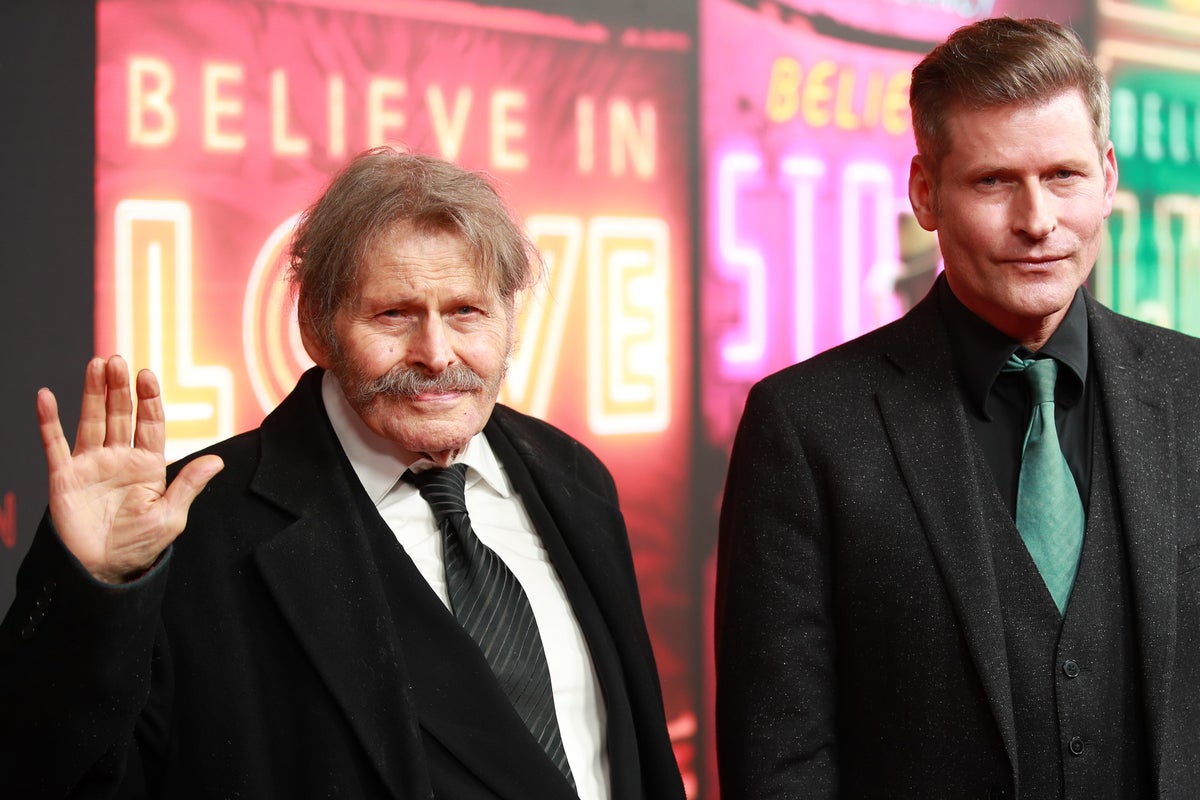
The passing of Bruce Herbert Glover on March 12, 2025, at the age of 92, marked the quiet departure of a true titan of character acting. For decades, Glover sculpted a singular niche in Hollywood, embodying a gallery of tough, often menacing, yet always memorable figures that left an indelible mark on cinema and television. He was the kind of actor whose face you recognized instantly, even if his name lingered just beyond the tip of your tongue, a testament to the power of his indelible performances and a career built on gritty authenticity.
Glover’s career was a fascinating tapestry woven with diverse roles, from the global spectacle of James Bond to the nuanced drama of Roman Polanski. His distinctive look and voice often led him to portray villains and supporting characters who, despite their often limited screen time, commanded attention and added essential texture to every story he joined. This article embarks on a journey through some of his most iconic contributions, illuminating the depth and breadth of a talent that consistently elevated the material.
More than just a performer, Glover was an artist committed to his craft, influencing not only his colleagues but also future generations through his acting classes. His legacy extends beyond the screen, encapsulating a dedication to performance that defined a generation of character actors. As we reflect on his extensive filmography, it becomes clear that Bruce Glover was far more than just a supporting player; he was a foundational pillar of cinematic storytelling, leaving behind a body of work that continues to resonate with audiences and fellow artists alike.
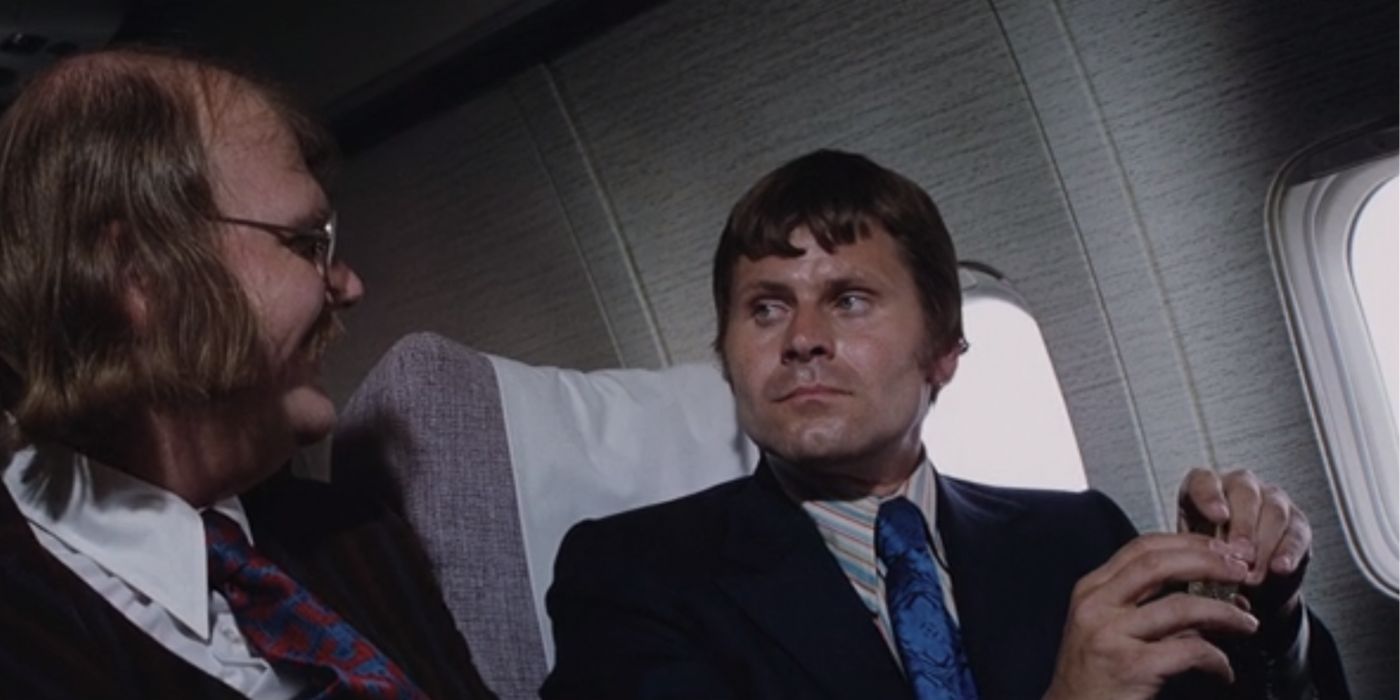
1. **Mr. Wint in *Diamonds Are Forever* (1971): The Icy Assassin**Bruce Glover’s portrayal of Mr. Wint in the 1971 James Bond film *Diamonds Are Forever* stands as arguably his most iconic and enduring role. As one half of the chillingly casual homosexual henchman team, Mr. Wint and Mr. Kidd, Glover crafted a villain whose quiet menace and unsettling demeanor left an unforgettable impression on Bond fans worldwide. His character, alongside jazz musician Putter Smith’s Mr. Kidd, brought a unique and darkly humorous dynamic to the traditional Bond villain archetype, facing off against Sean Connery’s 007 with a sinister flair.
The genius of Glover’s Mr. Wint lay in his understated delivery and unsettling presence. Unlike the bombastic villains often seen in the franchise, Wint was cool, collected, and utterly ruthless, often exchanging unsettlingly polite banter with his partner before or after committing heinous acts. The context highlights that Glover often improvised his lines, adding a unique flair to his character, a fact praised by co-star Sir Roger Moore, who described Glover as a “delightful chap” with whom he had “great fun together during filming.” This improvisational touch undoubtedly contributed to the memorable nature of the character, making him stand out in the crowded pantheon of Bond antagonists.
This role cemented Glover’s status in cinematic history, ensuring his continued remembrance by Bond enthusiasts. Despite his modesty about the role, stating in a 2020 interview, “I didn’t realize it was going to be such a big deal… I thought it was just going to be another job,” his performance as Mr. Wint remains a significant part of James Bond lore. His contribution to the franchise is significant, and his character remains a topic of discussion among fans, solidifying his place as one of the most memorable Bond villains in franchise history.

2. **Deputy Grady Coker in the *Walking Tall* Series (1973, 1975, 1977): The Lawman with a Shady Edge**
Beyond the international intrigue of James Bond, Bruce Glover found another significant and recurring role as Deputy Grady Coker in the *Walking Tall* film series. Beginning with the original 1973 film and continuing through its sequels, *Walking Tall Part 2* (1975) and *Walking Tall: Final Chapter* (1977), Glover embodied a character who, while technically on the side of the law, often operated in the morally ambiguous fringes that defined his character acting prowess. This role allowed him to explore the complexities of a character operating within a vigilante narrative.
As Deputy Grady Coker, Glover brought a distinct flavor to the rough-and-tumble world of these action-vigilante films. His character was an integral part of the local landscape, often reflecting the tough, no-nonsense environment depicted in the movies. His performances in this series further showcased his ability to portray individuals who were not always purely good or purely evil, but rather grounded in a gritty reality. This nuanced approach to a supporting character helped to make the *Walking Tall* films resonate with audiences, capturing the essence of the rural justice system, however flawed it might have been presented.
The continuity of the Grady Coker role across three films underscored Glover’s reliability and impact as a character actor. While the sequel, *Walking Tall Part II*, might have “failed to score at the box office,” Glover’s consistent presence maintained a thread of familiarity and quality throughout the series. It was another opportunity for him to inhabit a role that played into his strengths of portraying tough, intimidating figures, but with the added layer of institutional authority, even if that authority was often challenged by the narrative’s hero.
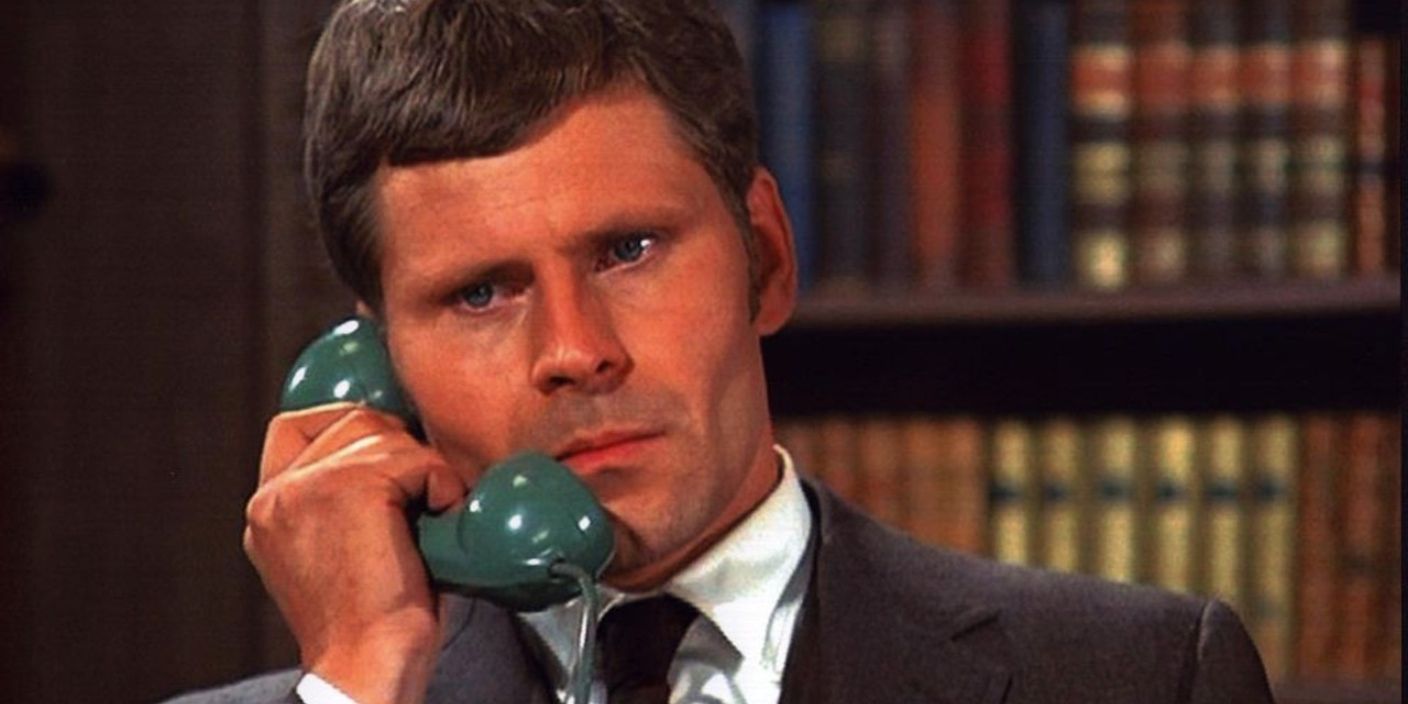
3. **Duffy in *Chinatown* (1974): A Cold Gaze in a Noir Masterpiece**In Roman Polanski’s 1974 noir masterpiece, *Chinatown*, Bruce Glover delivered another icy performance as Duffy, a role that perfectly suited his distinctive talent for portraying subtly menacing figures. While not the film’s central antagonist, Duffy was an essential piece of the intricate, shadowy puzzle that made *Chinatown* a cinematic landmark. His presence added to the pervasive sense of unease and corruption that permeates the film’s gritty Los Angeles setting, solidifying its 98% highest rating.
Glover’s performance as Duffy was characterized by his quiet intensity and sharp, observant gaze, contributing to the film’s suffocating atmosphere of deceit and danger. He wasn’t a character who needed grand monologues; his impact came from his demeanor, his watchful eyes, and the implied threat he carried. This kind of nuanced character work is precisely what defined Glover’s career, allowing him to stand out even in ensemble casts filled with towering talents like Jack Nicholson. His ability to convey depth and subtle menace with minimal dialogue was a hallmark of his craft.
*Chinatown* remains one of the most highly acclaimed films in cinema history, and Glover’s contribution, though perhaps brief, was critical to its success in establishing a world riddled with hidden agendas and moral decay. His role as Duffy reinforced his reputation for embodying tough, often unsympathetic characters who, through their very presence, deepen the narrative’s tension. It was another clear example of Glover’s skill in contributing memorable performances to critically lauded projects, demonstrating his range beyond more overt villainy.
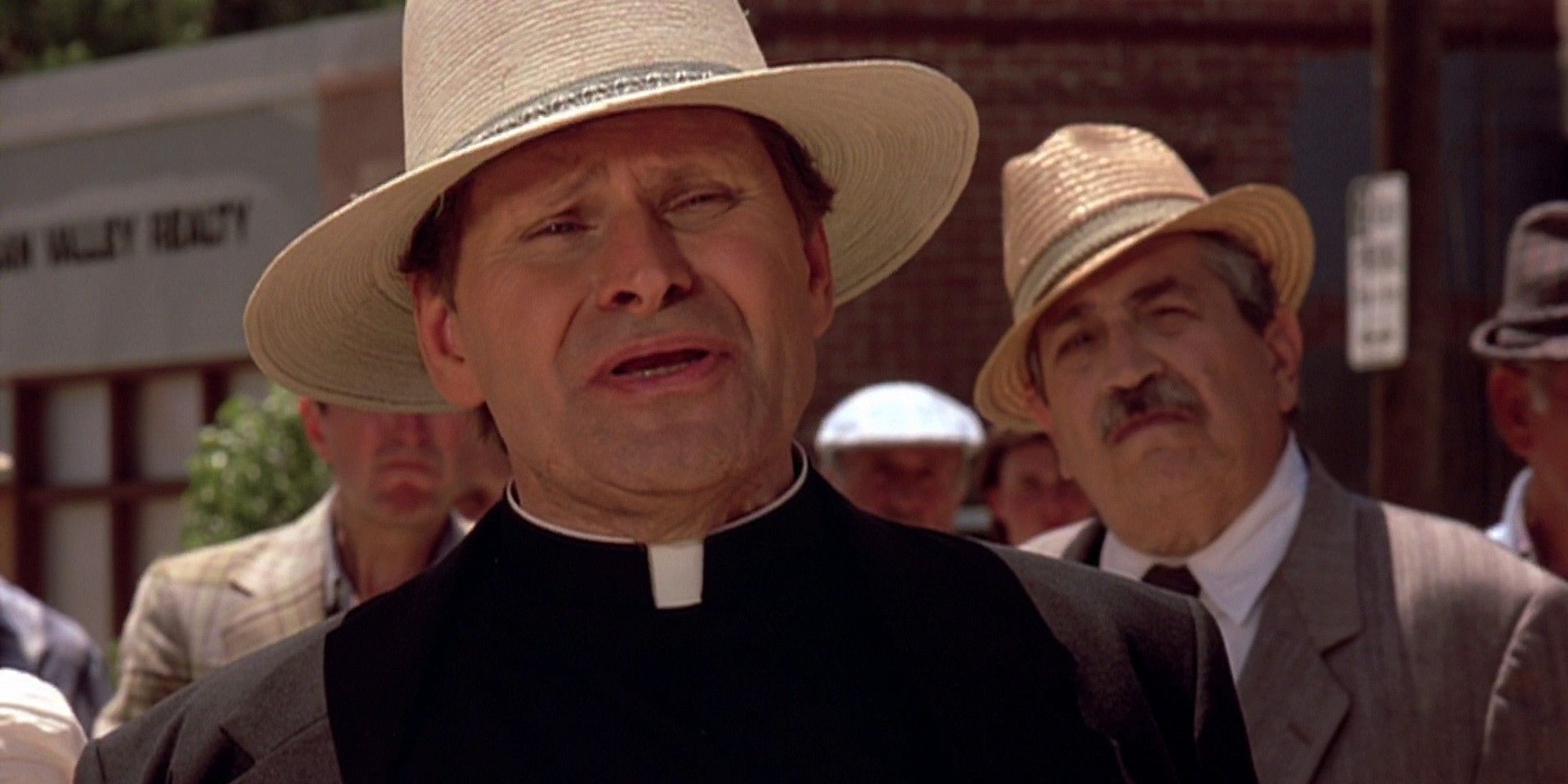
4. **Doty in *Hard Times* (1975): The Streetwise Enforcer**In Walter Hill’s 1975 gritty drama *Hard Times*, Bruce Glover once again stepped into a role perfectly tailored to his imposing screen presence, portraying Doty. This film, set during the Great Depression, follows bare-knuckle fighter Chaney (Charles Bronson) and his manager Speed (James Coburn), with Glover’s character adding to the tough, desperate atmosphere of illegal street fighting. Doty was the kind of figure who operated on the fringes, embodying the harsh realities of survival in economically bleak times.
Glover’s portrayal of Doty involved him “leaning on hustler James Coburn to repay his debts,” a classic character dynamic that showcased his natural ability to play intimidating enforcers. He brought a sense of grounded menace to the screen, making his character’s demands feel entirely credible within the film’s harsh setting. This was not a flamboyant villain, but a man deeply embedded in the brutal economics of the streets, making sure that debts were paid, one way or another. His performance contributed significantly to the film’s authentic depiction of a dog-eat-dog world.
*Hard Times* is often lauded for its realistic and unsentimental portrayal of its subject matter, and Glover’s Doty was instrumental in maintaining that authenticity. His role, while supporting, was vital in establishing the stakes and the constant pressure faced by the main characters. The film, which holds an 89% rating, benefited immensely from Glover’s consistent ability to inhabit these tough-guy roles with a compelling blend of realism and quiet threat, reinforcing his status as a sought-after character actor for such intense dramas.

5. **Early Television Appearances (1960s-1970s): Forging a Versatile Persona**Before his prominent film roles, Bruce Glover honed his craft with numerous appearances on various popular television shows throughout the 1960s and early 1970s. These early guest spots were crucial in shaping his versatile persona and establishing his reputation as a reliable and distinctive character actor. From sci-fi sitcoms to Westerns and crime dramas, Glover navigated a diverse landscape of television, showcasing his adaptability and range.
His early television credits are a who’s who of classic American programming, including *My Favorite Martian* (1963), *Perry Mason: The Case of the Golden Girls* (1965), *The Rat Patrol* (1966), *Hawk* (1966), *The Mod Squad* (1968), *Gunsmoke* (1969), *Adam-12* (1969), and *Mission: Impossible* (1970). These roles, though often one-offs, allowed him to experiment with different character types, from military personnel to criminals, laying the groundwork for the more complex roles he would tackle later in his career. The experience gained in these episodic dramas was invaluable, teaching him how to make a quick, impactful impression.
These roles demonstrated his ability to blend into various narrative styles while still leaving a memorable mark. Whether it was a brief appearance in a Western or a more substantial part in a spy thriller, Glover consistently delivered performances that served the story and deepened the atmosphere. His early work on shows like *Route 66* and *The Good Guys* also highlighted his willingness to dabble in different genres, from adventure to comedy, proving his versatility long before he became known for his more menacing film roles. These foundational years were essential in building the resilient and adaptable career that defined Bruce Glover.
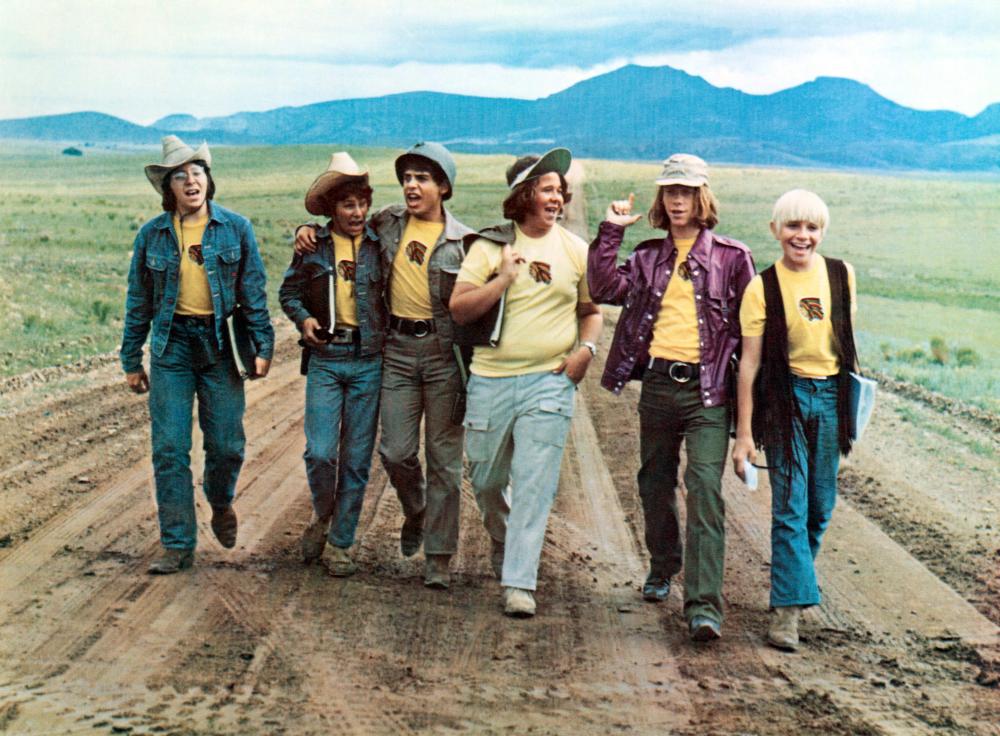
6. **Bach in *Adam-12* (1969) & Hustler in *Bless the Beasts and Children* (1971): Early Grit and Gruffness**
Among his extensive list of early television and film appearances, two roles stand out as early showcases for the gritty and gruff persona that Bruce Glover would cultivate throughout his career: Bach in the *Adam-12* episode “Log 103: A Sound Like Thunder” (1969) and the Hustler in the drama *Bless the Beasts and Children* (1971). These performances provided early glimpses into his ability to embody characters who, while not necessarily lead villains, created palpable tension and conflict.
As Bach, a motorcycle gang leader in *Adam-12*, Glover tapped into a raw, rebellious energy that made his character a memorable antagonist for the show’s police officers. This role allowed him to flex his muscles in portraying tough, anti-establishment figures, a type he would revisit in various forms throughout his career. It was an early demonstration of how his distinctive look and voice naturally lent themselves to characters who could instantly communicate authority, defiance, or outright aggression, making him a formidable presence on screen, even in a procedural drama.
Similarly, in Stanley Kramer’s *Bless the Beasts and Children*, Glover played a “redneck thug harassing well-meaning teenagers,” a role that emphasized his capacity for embodying individuals driven by petty malice or a sense of territorial dominance. As the Hustler in the film, he contributed to the harsh realities faced by the young protagonists, adding a layer of threat that was both believable and unsettling. These two roles, though distinct in their settings, collectively highlighted Glover’s unique talent for infusing minor characters with significant impact, cementing his reputation as an actor who could always be counted on to deliver a compelling, often confrontational, performance.

